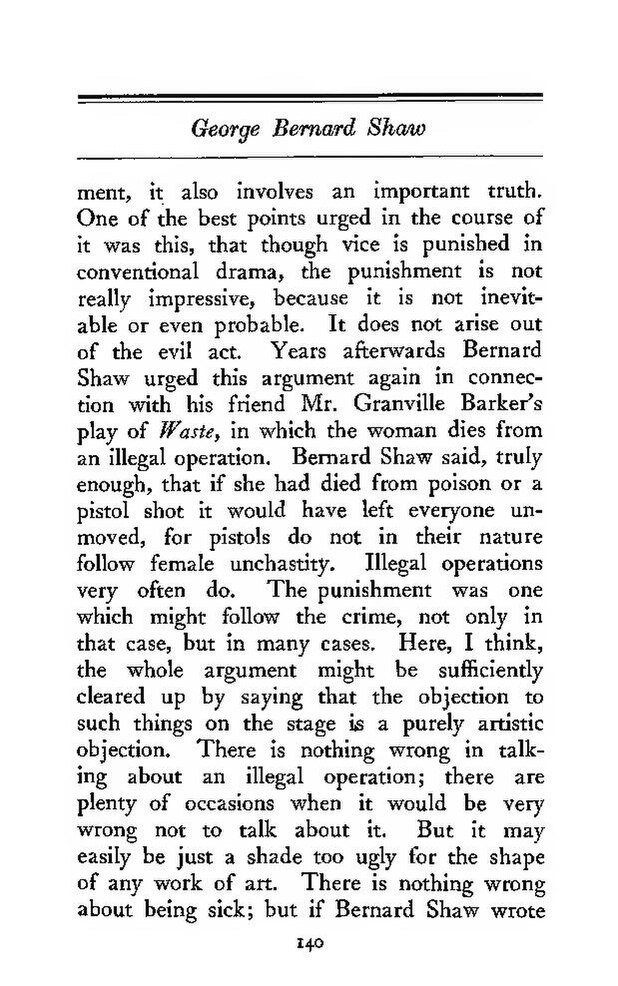ment, it also involves an important truth. One of the best points urged in the course of it was this, that though vice is punished in conventional drama, the punishment is not really impressive, because it is not inevitable or even probable. It does not arise out of the evil act. Years afterwards Bernard Shaw urged this argument again in connection with his friend Mr. Granville Barker's play of Waste, in which the woman dies from an illegal operation. Bernard Shaw said, truly enough, that if she had died from poison or a pistol shot it would have left everyone unmoved, for pistols do not in their nature follow female unchastity. Illegal operations very often do. The punishment was one which might follow the crime, not only in that case, but in many cases. Here, I think, the whole argument might be sufficiently cleared up by saying that the objection to such things on the stage is a purely artistic objection. There is nothing wrong in talking about an illegal operation; there are plenty of occasions when it would be very wrong not to talk about it. But it may easily be just a shade too ugly for the shape of any work of art. There is nothing wrong about being sick; but if Bernard Shaw wrote
140
